Overwatch 2 review-in-progress
A messy sequel that tries to erase one of the best shooters in the last decade.
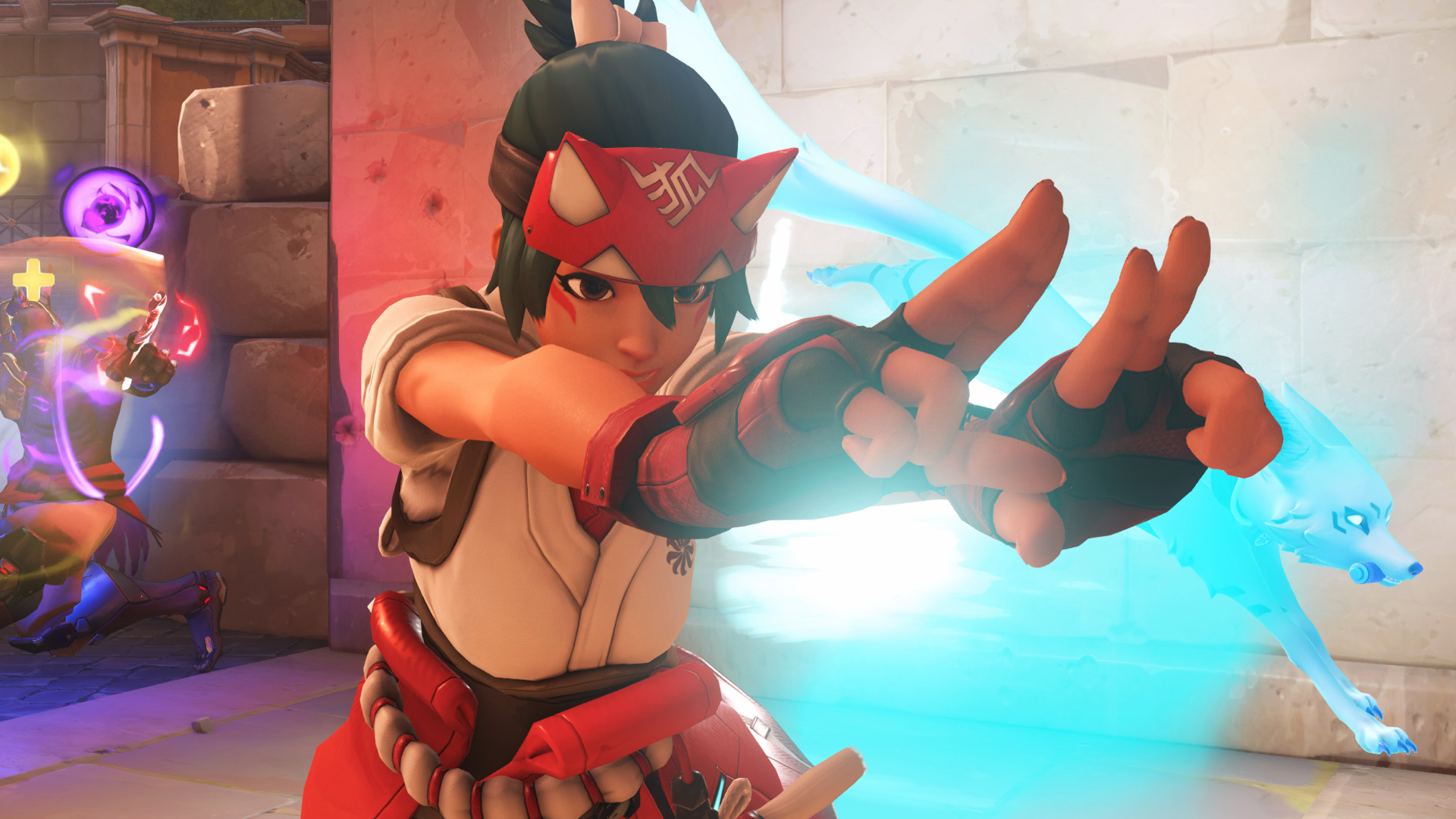
Overwatch 2 is a sequel that, intentionally or not, is trying to bury its predecessor alive. The original Overwatch is still in there, bruised and broken, but the weight of Blizzard's commercial and competitive expectations keeps piling up. It's a sequel that attempts to renew its predecessor with layers of unnecessary complexity and refuses to reach inward to find and nourish the ambitious and joyful FPS beneath it all.
The original Overwatch changed the shape of the FPS genre in the years following its explosive release in 2016, before Fortnite and battle royales took over. Instead of synthesizing what made the original game enviable and revitalizing it, the sequel takes what was left and wraps it up in a monetization scheme that could finally kill it for good.
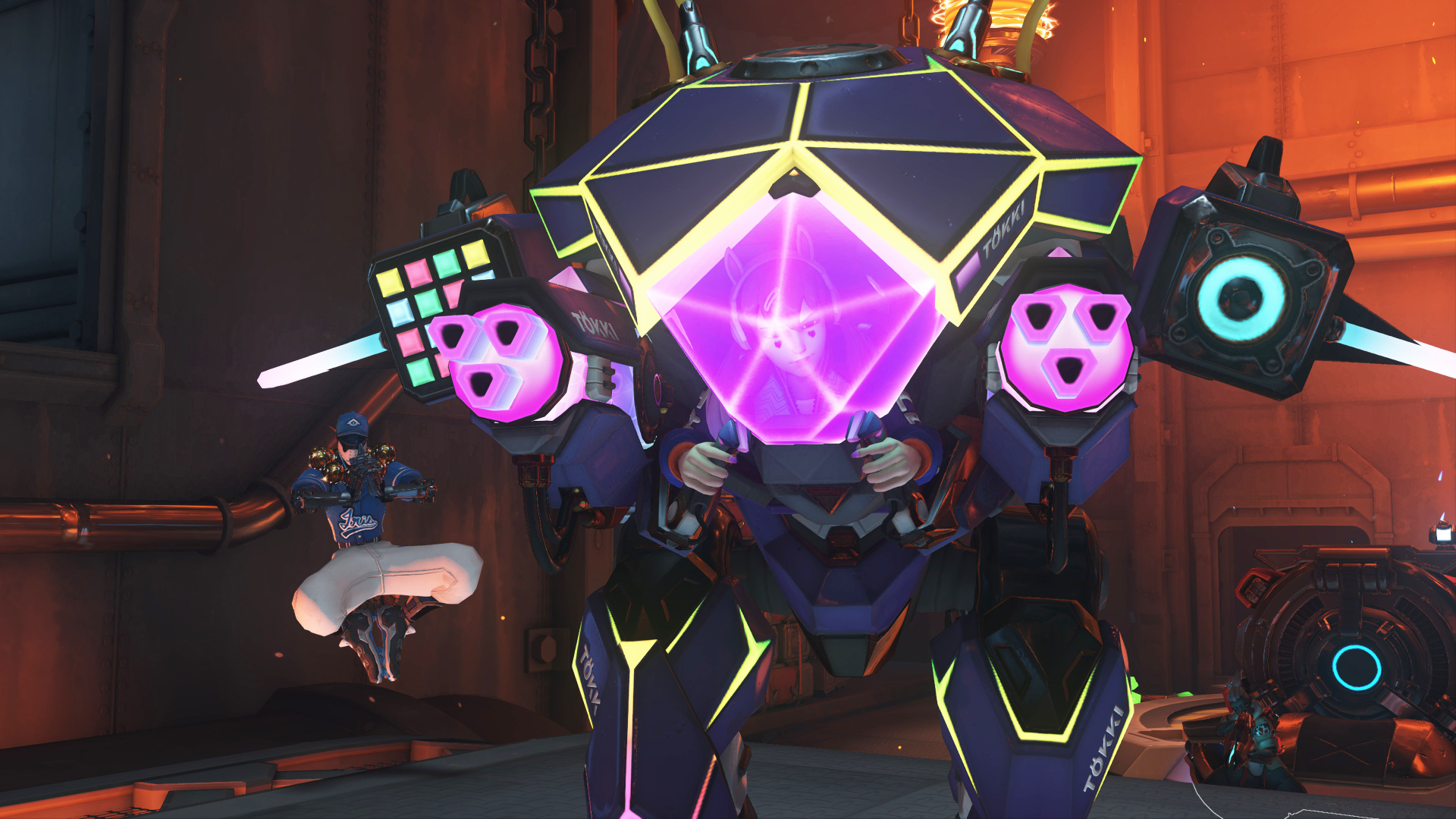
Overwatch 2 is the conclusion to Overwatch's six-year-long mutation into a free-to-play game. It now has daily and weekly challenges, a battle pass, and an aggressive release schedule for new heroes and cosmetics—all of it made to squeeze more time and money out of its players now that there isn't an entry fee to play it. The $40 Watchpoint Pack available on Blizzard's store grants you a bundle of skins, the first season's premium battle pass and 2,000 of its new Overwatch Coins currency to buy premium battle passes (1,000 coins per season), cosmetics and heroes. Overwatch Coins can also be slowly earned by playing the game and completing weekly challenges. Blizzard has said it's designed so that if you play enough to complete your weekly challenges routinely, you will earn enough of the currency to buy a premium battle pass every other season.
Most of Overwatch 2's new heroes and cosmetics, not its game modes or maps, will cost you, and if you never bought the original game, you'll have to play around 100 games to unlock most of Overwatch's original 32 heroes. I expect some new player onboarding and barriers to heroes and modes to prevent experienced and disruptive players from making new accounts and ruining matches for fun in a free game. Plenty of games do this. The problem is how those barriers threaten to encroach on Overwatch's strategic metagame with hero swaps and counter-picking.
Blizzard has a history of launching heroes with absurdly strong abilities that can often make old heroes irrelevant. Echo dropped in 2020 as a flying, burst-damage hero that made almost every other DPS pick look pathetic in comparison, and even Overwatch 2's Junker Queen recently had to be tamed so that professional players would finally pick another tank in the Overwatch League.
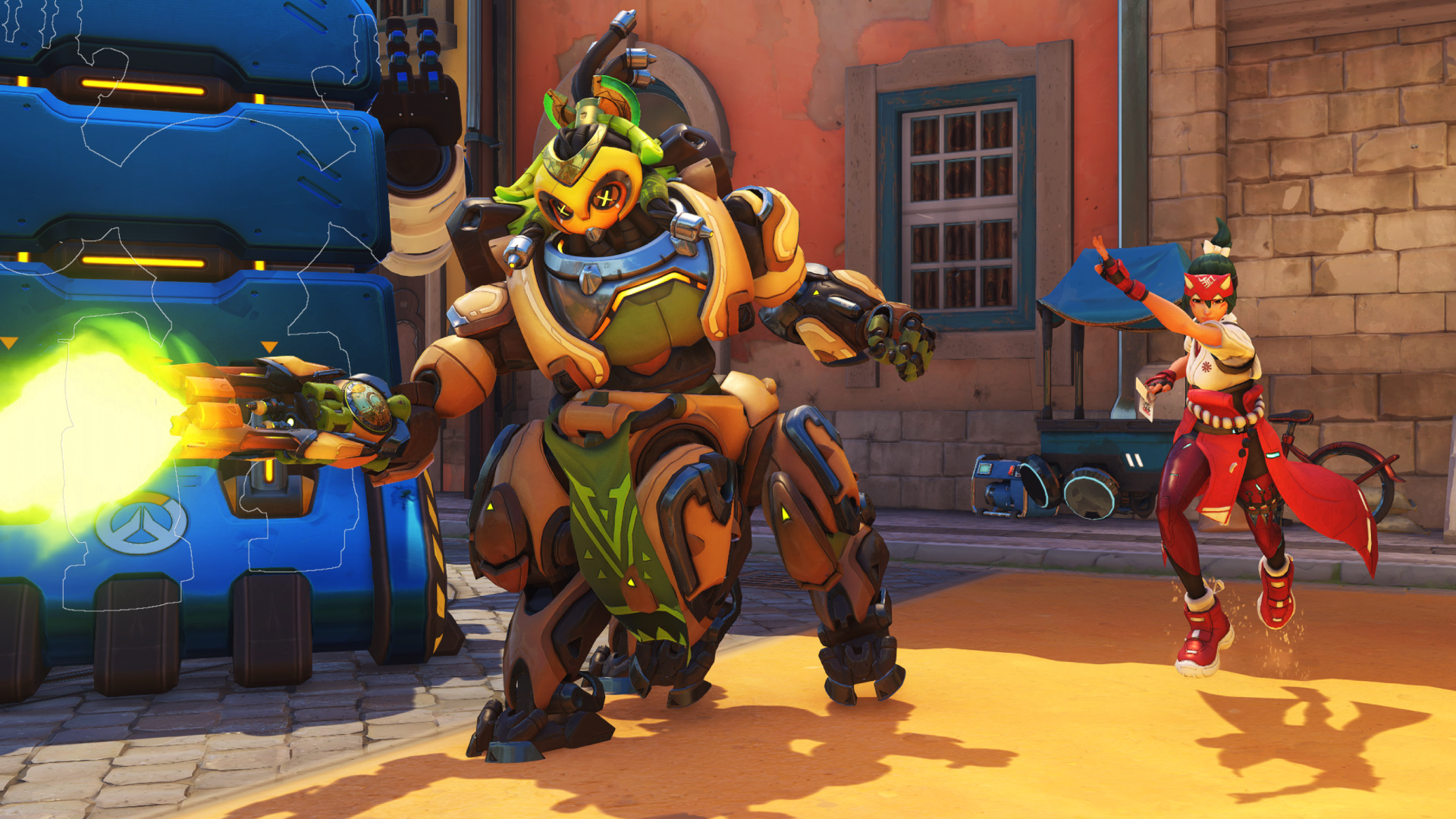
I'm skeptical of Blizzard's ability to keep its roadmap of roughly three heroes each year in equilibrium with the rest of the cast, especially when it's only going to get harder as the number grows. To lock heroes behind the battle pass, even if they're free, opens the opportunity for the monetization and progression systems to dangle what is essentially player power in front of you. And for Blizzard, a company that's estimated to have made over $100 million in a month from Diablo: Immortal earlier this year, it's hard not to see how this could go wrong fast. I've played all three of the new heroes that will arrive with Overwatch 2 next week and none of them are egregiously strong, but it's going to be something to watch as the game moves forward.
The limited, early access version of Overwatch 2 that I've played along with other members of the press in the past week hasn't had the joy sucked out of it yet, but I'm worried about its future. The game's shift to an 5v5 format that emphasizes aggressive play and the sweeping balance changes to most of its heroes target Overwatch's most experienced players and not the ones that might return to the game or try it for the first time next week.
Keep up to date with the most important stories and the best deals, as picked by the PC Gamer team.
Rough start
Overwatch, in its original form, was a rare FPS that welcomed non-FPS players, building room in its roster for supportive roles and characters who could win a match with a clutch heal or defensive bubble. Now, almost every hero, including its three new ones, has been imbued with high-skill mechanics that feel tailored to esports pros rather than the average players with no desire to play at that level. Who exactly is this game supposed to be for?
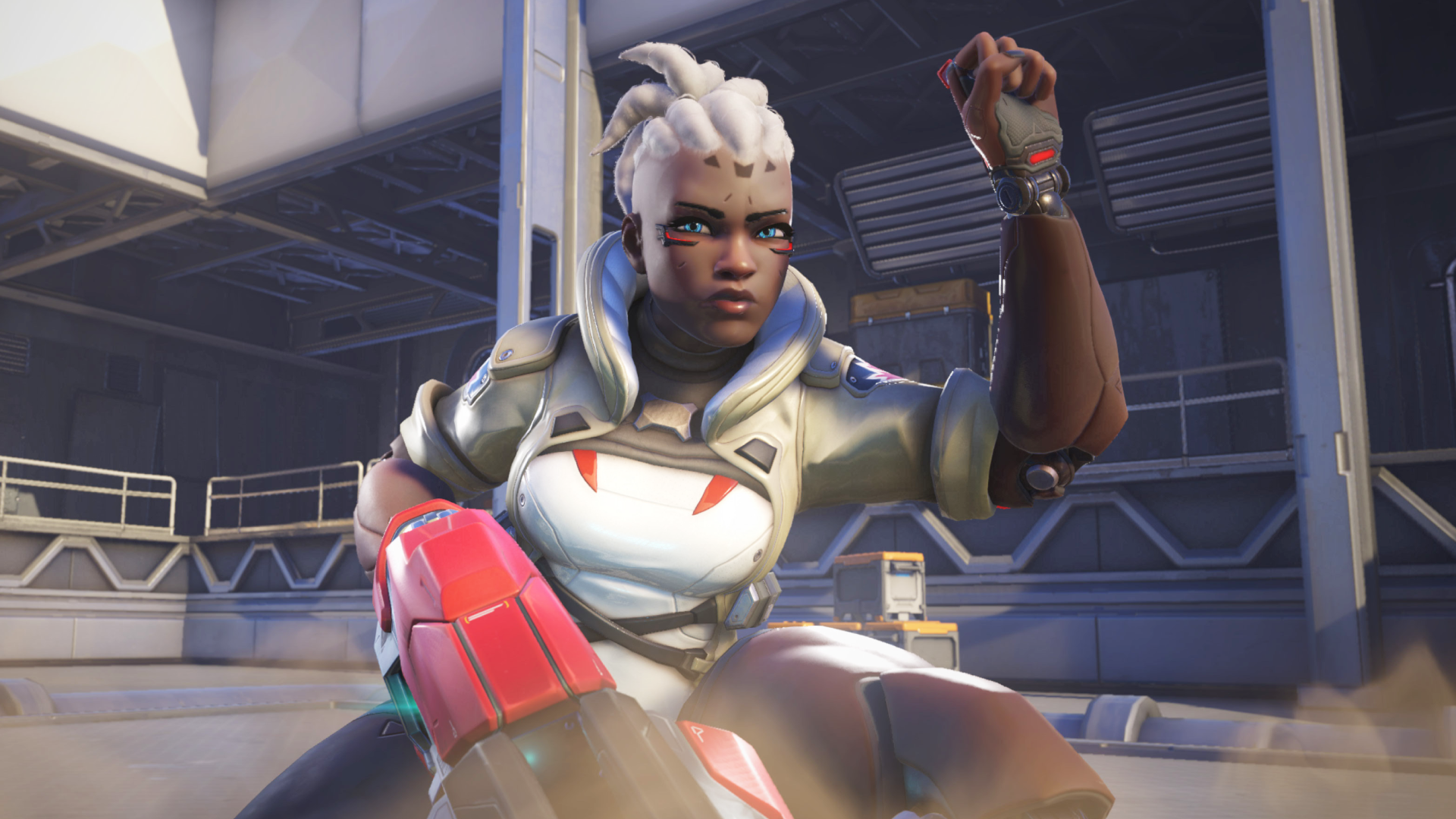
With one tank on each team and the new addition of role passives (all damage characters get a boost in movement and reload speed after a kill or assist, for example), you don't have to rely on the micro-decisions of your allies. When my Reinhardt finally had the courage to swing into the enemy team, pulling their attention away from my flank attack as Genji, I could easily assassinate weak support heroes, but with a strong enough positional advantage and good aim, I could do it all on my own.
With fewer abilities to slow down the pace of a match, battles don't last long, increasing the demand on split-second decision making.
Overwatch 2 loosens the grip that team composition and behavior had on individual play in the first game. To do that, it removes most of the stuns and knockbacks from damage heroes and turns tanks into Dark Souls bosses with big health bars and a variety of movement abilities. Mei can't freeze enemies in place anymore; Bastion is no longer stationary in turret form; Doomfist has been reworked from a damage dealer into a hyper-mobile tank. With fewer abilities to slow down the pace of a match, battles don't last long, increasing the demand on split-second decision making.
The three new heroes launching with the game thrive in Overwatch 2's messier battles. Sojourn is a blend of Soldier: 76 and Widowmaker with the ability to crouch-slide around the battlefield, Kiriko, the new kunai-wielding healer, can not only climb walls, but instantly teleport to allies through walls, and while Junker Queen lacks movement abilities, she can rally her allies with a temporary speed and health boost.
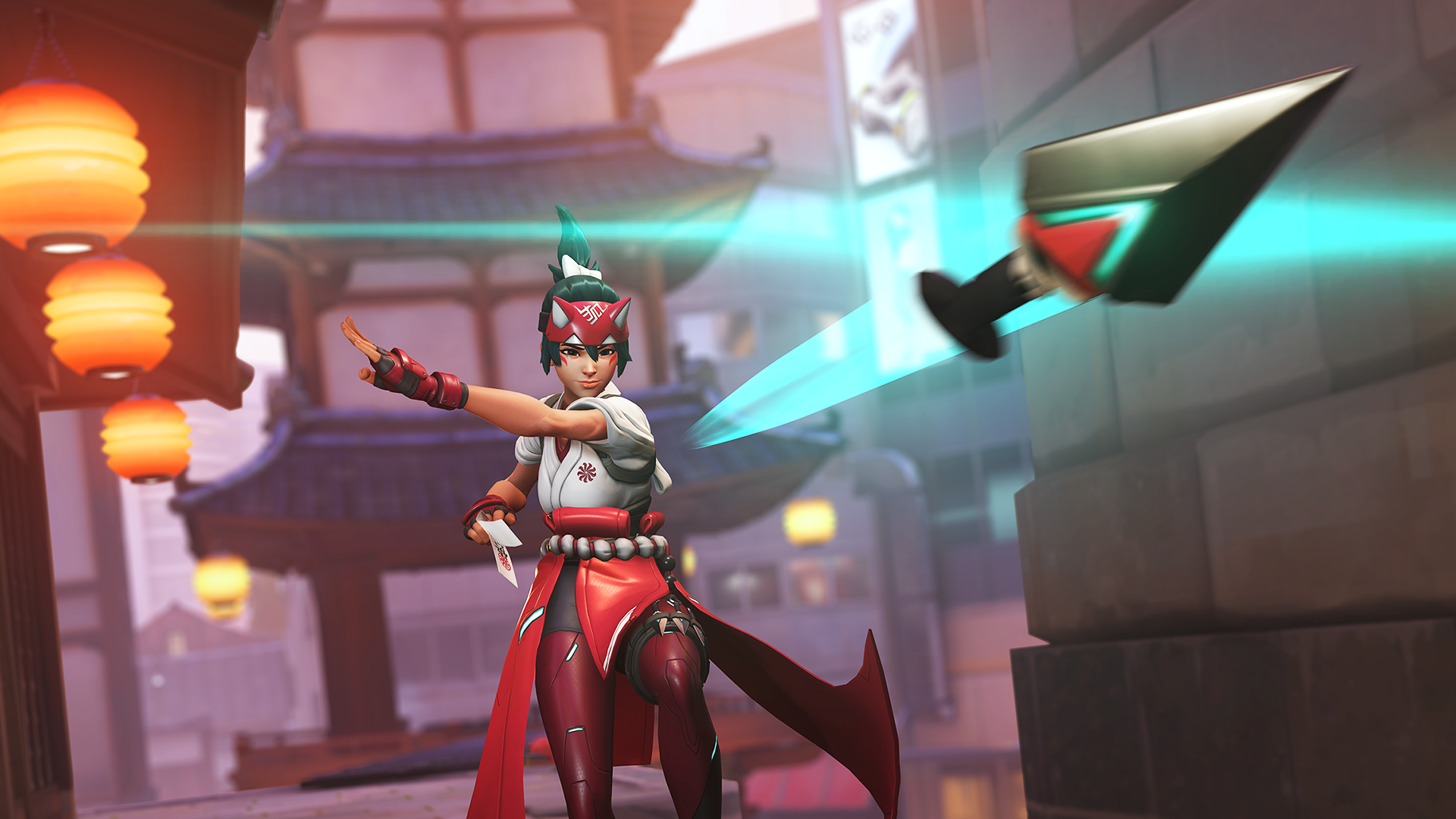
The first game left most of its original roster in a state that translates well to the new format, but some heroes stick out. Wrecking Ball and Sombra—both heroes who were largely kept in check by the existence of stuns and their low damage output—are a nightmare to play against. Wrecking Ball's massive health pool and Sombra's temporary 40% damage buff against hacked targets make both of them ridiculously punishing to uncoordinated teams. And Mercy has needlessly had her signature Guardian Angel glide ability complicated with a meter and two keybinds to determine which direction to fly. None of these break the game, but they reveal how much work is left to make sure the entire cast fits into the new ruleset. Overwatch 2's freshly cut shape is visible, but when you put your hands on it there are a lot of bumps and splinters that will need to be sanded out with updates in the future.
Grind on
Overwatch 2 is lined with bars to fill and XP to gain in its new challenge system and seasonal battle pass. Daily challenges seem to be randomized like most other games and weekly, seasonal, and lifetime challenges are universal goals that reward trinkets like profile titles and icons. I played Quick Play in roughly two hour chunks each day and could fill out three to four levels of the 80-tier battle pass as long as I picked the appropriate heroes to satisfy my challenges. That was with the 20% boost from owning the premium battle pass too.
While not as much of a chore as Blizzard implied it might be by locking new heroes behind tier 55 on the free track, the battle pass and challenge system fragments the original game's attempt to simply make a game worth trying in. Wins are still important, and always the goal of at least one challenge every day, but objectives that ask you to mitigate a certain amount of damage with a barrier or get 100 kills redefine how you should approach each match. In order to make the most out of my limited time playing, I picked Reinhardt even when he wouldn't be particularly effective because I wanted to get my mitigation challenge done—and I wouldn't blame others for doing it too.
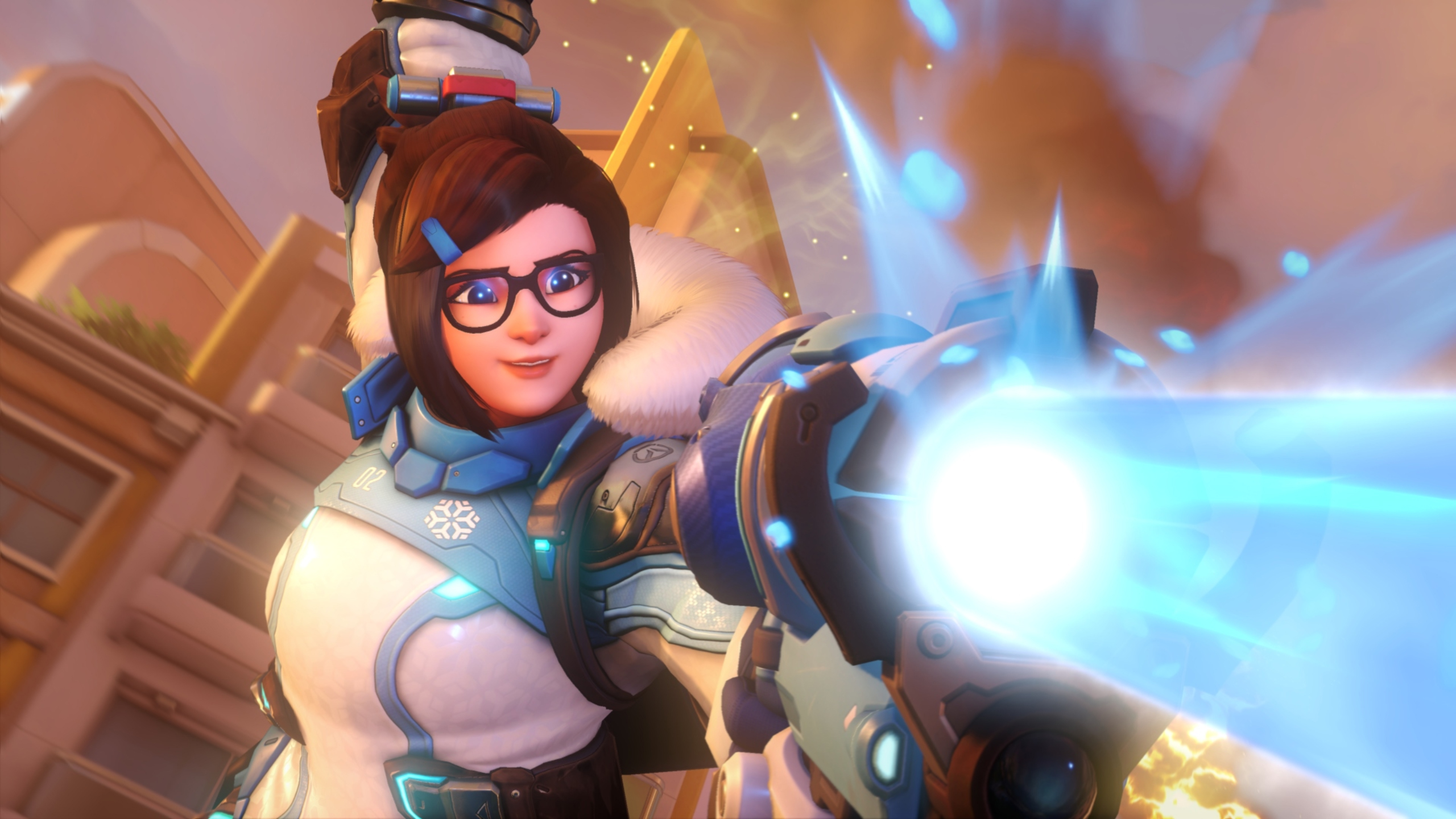
This transformation—turning a game that was once about finding the best way to collaborate with your teammates into a solo-minded hunt to efficiently complete your dailies—guts individual victories of their weight. Every match is a step toward a meta-level goal, task lists that supercede the organic fun of teamwork and ask you to chase multi-kills, keep a shield up for longer than you should; spend the entire match over-healing your allies instead of using your other supportive abilities. Overwatch 2 dilutes the spirit of its interlocking hero battles and locks its most impressive skins and cosmetics behind playing the way the battle pass suggests, for hours a day.
Even if it's the norm for live service free-to-play games and a slight improvement over the original's loot boxes, it's disappointing to see a game that once celebrated the joy of experimenting and learning the depth of its team-based battles to now demand people to wrap their lives around it, pay money, or leave empty handed. Getting a skin for the new support in tier 20 of the first season's battle pass would take you almost a week of focused play—and you wouldn't get it at all if you didn't pay for the $10 premium battle pass.
Stuck in the past
Overwatch 2's live service relaunch has also left its once-fresh world of diverse characters on hold for future updates. The story hasn't developed several of its existing characters, nor has it progressed past Winston's call to action in the cinematic short that debuted with the game. Blizzard promises the PvE missions will build on the story in the future, but none of them will be in the game at launch.
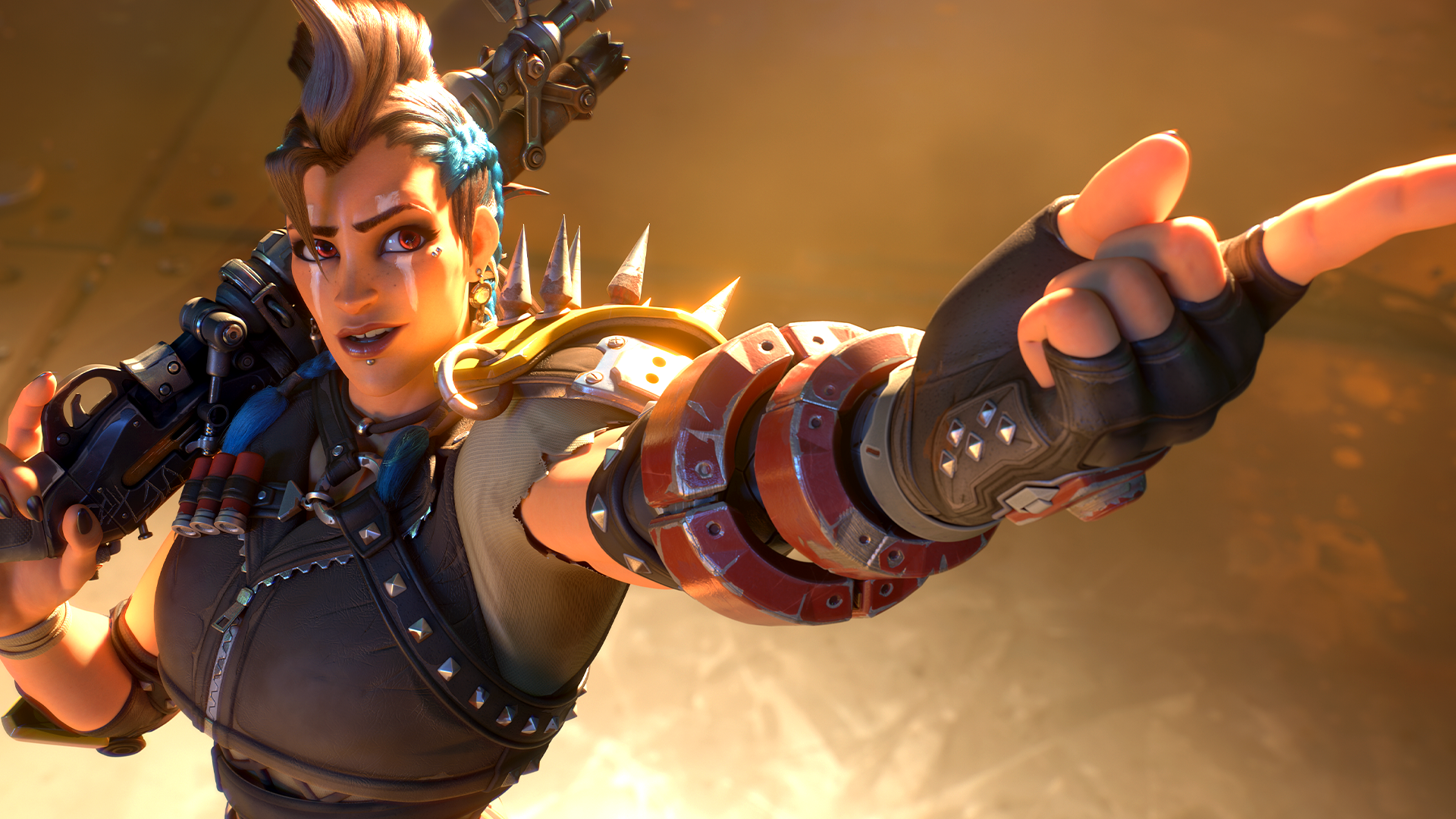
The original Overwatch prided itself on its "hopeful vision of the future," and it was a bold attempt to be an FPS for the people who the genre so often left out. The reality of the present even back in 2016 wasn't so hopeful, for a variety of reasons. The three new characters in the sequel do little to carry that vision forward. While each mechanically creative, their backstories look like they were written six years ago.
Overwatch has had many opportunities to push further with each new hero, and the sequel can't even reach the bar that other games have only nudged in the last few years.
Kiriko, a third Japanese character coming to the game in Overwatch 2, worships a real magical fox spirit, is in a gang called the Yokai, and is also a ninja—all of which is represented in her set of abilities. Her close ties to Hanzo and Genji (her mother trained the brothers) shows disappointingly little imagination. Most of the other heroes don't literally wield their cultures as magical weapons and abilities. This approach to writing characters and worldbuilding shrinks the global, near-future world that it wants to depict.
And with how long fans have been asking for a black woman hero—while Blizzard released both a robot and a talking hamster in the interim—it's frustrating to see Overwatch 2 fail to be as bold as the original game was in 2016.
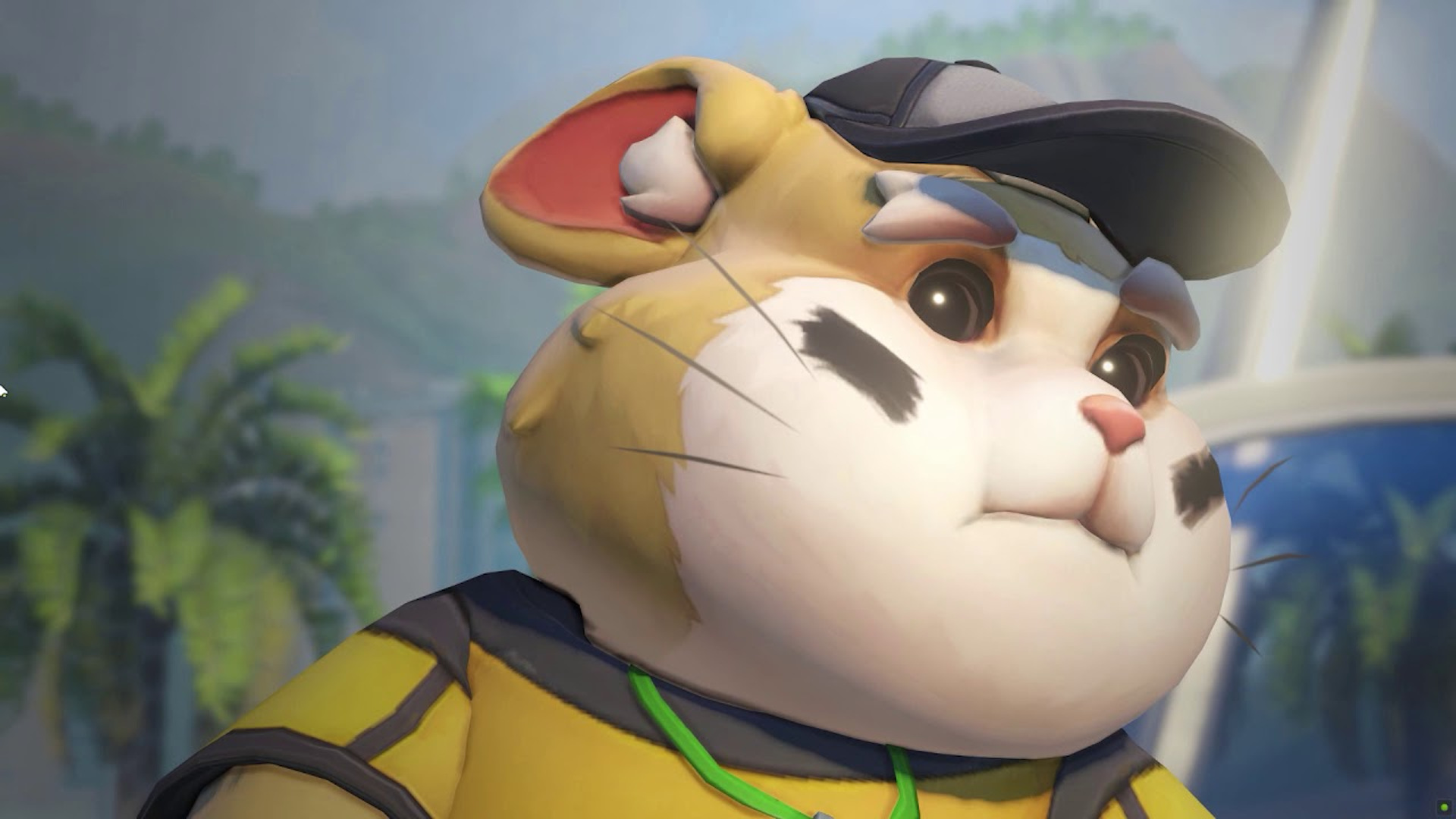
Modern FPS games with global character rosters have only barely started to acknowledge other racial and gender identities. Overwatch has had many opportunities to push further with each new hero, and the sequel can't even reach the bar that other games have only nudged in the last few years.
Rain check
Overwatch 2 doesn't feel ready yet. For everyone who still actively plays Overwatch, the sequel has enough new toys to play with and unlock, but the beating heart of the game I devoted thousands of hours of my life to is a series of misguided balance changes and monetization systems away from flatlining. It's in a fragile state that might not solidify into a shooter worth regularly playing for a year or two, if it ever does.
Overwatch 2 is a chance to learn from the last six years and aim as high as the original game did, to widen its bright, team-based battles to welcome even more players looking for the sort of characters other games ignore. But right now, it's hard to see that game underneath all the scaffolding it took to adapt it into a free-to-play shooter that mimics its successful contemporaries and ties it all into a shameless monetization scheme.
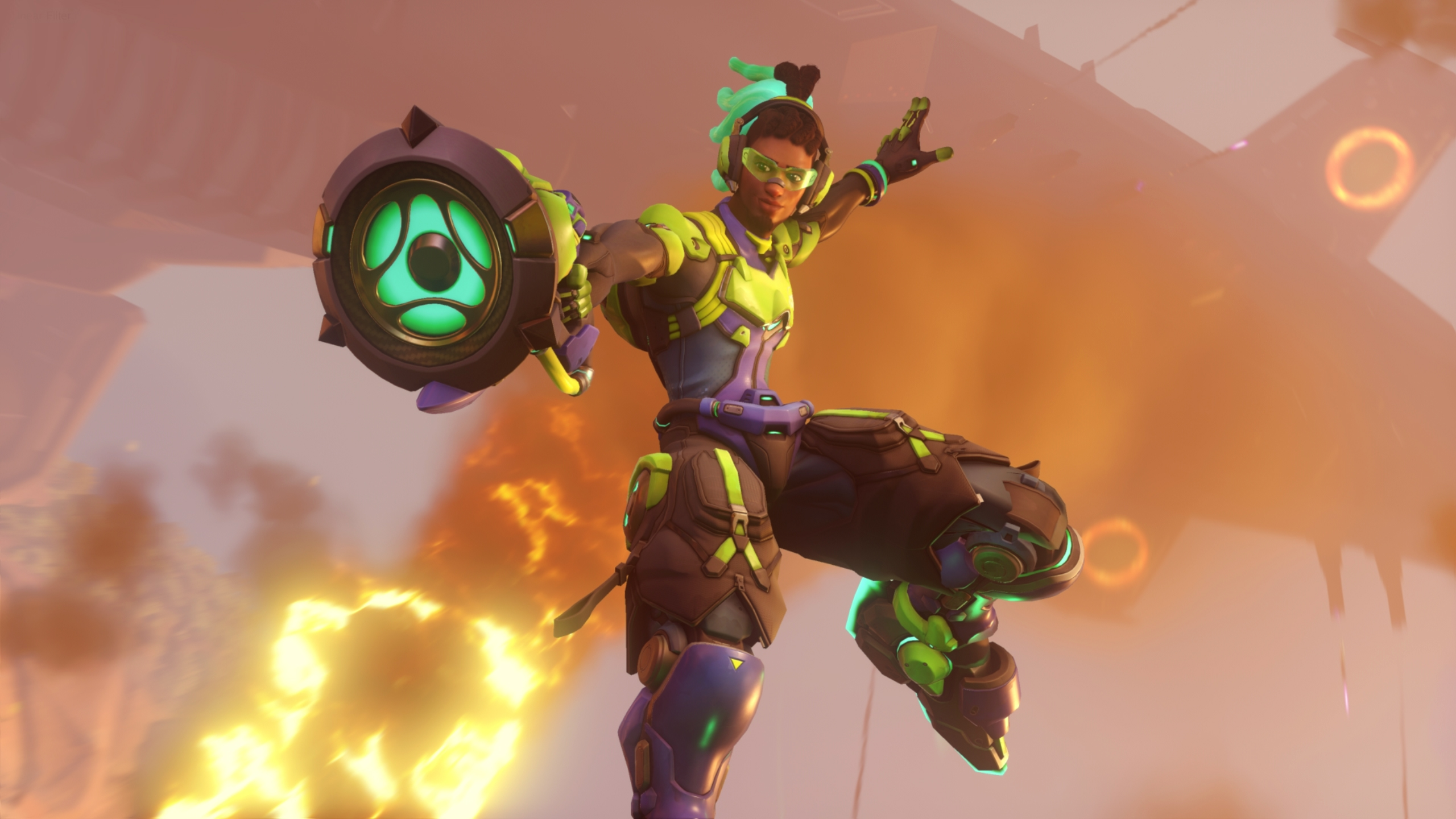
It might still become the game many of its fans, like me, dreamed it could be. It could be a game that appeals to people who love the cerebral joy of a frantic firefight, but one that maintains a metagame of counter-picking and positional play for those who like to play chess with its unique heroes, too. It could take all of its charming and compelling characters and interrogate the original game's question of what a disparate group of heroes could do for a world that rejected them. It could be the game that makes every ability, every remark, and every location evocative of the refreshing world it promised to be.
But that's not Overwatch coming out next week. It's still in there, waiting to be dug out and refreshed for all the players, like me, who are unsatisfied with every other hero shooter out there. Overwatch 2 wouldn't be what it is without the game that came before it and now it's trying to reinvent itself. I just worry about what will be lost when it finally does.
Tyler has covered videogames and PC hardware for 15 years. He regularly spends time playing and reporting on games like Diablo 4, Elden Ring, Overwatch 2, and Final Fantasy 14. While his specialty is in action RPGs and MMOs, he's driven to cover all sorts of games whether they're broken, beautiful, or bizarre.

